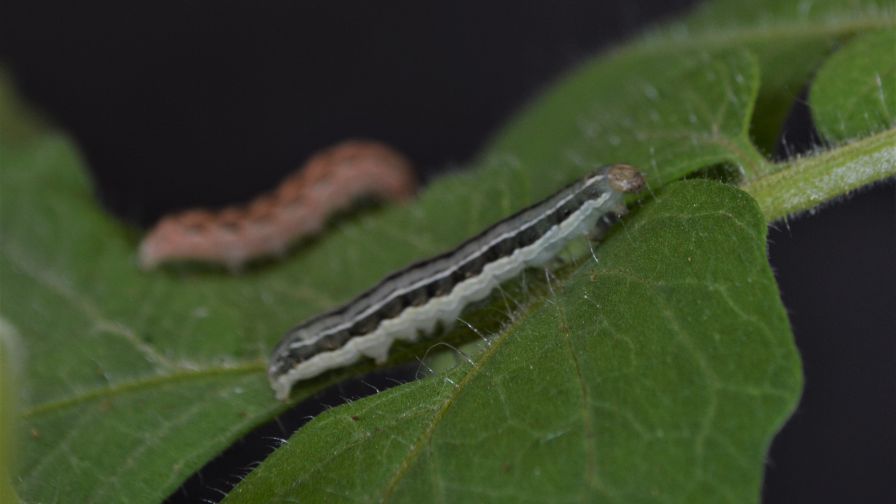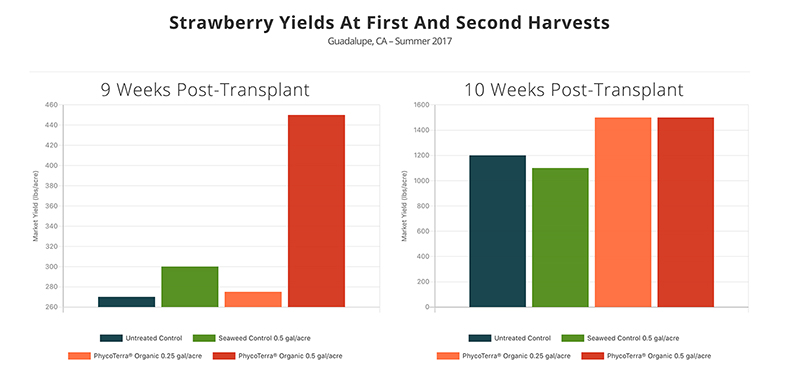Tomato Pests Can Be Induced to Cannibalism, New Study Shows

If this tomato plant has made its leaves too nasty-tasting for a caterpillar to eat, the fellow traveler in the background might be next on the menu. Photo by Brian Connolly, University of Wisconsin, Madison
When beet armyworms are exposed to concentrations of methyl jasmonate, they will abandon eating tomatoes — and start eating one another, a new study from The University of Wisconsin’s John Orrock, an integrated biologist, shows.
Published in the peer review journal, Nature, the study explored if the common vegetable crop pest beet armyworm could be induced to cannibalism, a behavior that had been observed in other species when other food sources are scarce or off-putting.
Orrock pursued ways to make tomato leaves unappealing to the caterpillar by spraying tomato leaves with a chemical plants release naturally when under attack, methyl jasmonate.
It looks like it works.
“It often starts with one caterpillar biting another one in the rear, which then oozes. And it goes downhill from there,” Orrock says in an article on his study published by the University of Wisconsin.
Orrock and his team sprayed tomato plants, which we isolated in plastic containers, with either a control solution or low, medium, and high concentrations of methyl jasmonate, then added eight caterpillar larvae to each container. The researchers then counted the number of caterpillars remaining each day to determine how many had been eaten. They also weighed how much plant material remained each day.
The results? The caterpillars did not turn to cannibalism in the control and low-concentration groups until they had consumed the entire plant. But the beet armyworms became cannibalistic much more quickly in the groups with plants treated with moderate- and high-concentration applications. Also, the plants in these groups stayed mostly intact.
Orrock conducted a second experiment at Virginia Commonwealth University. In this study, he added a single caterpillar larva to containers holding plant leaves either not sprayed with methyl jasmonate, or sprayed with a moderate level of the chemical. To some containers he also added freshly frozen-and-thawed caterpillars that appeared alive, offering the insects a cannibalistic food option that would not compete with the larva by eating the leaves.
The results were similar to the original study, with caterpillars becoming cannibalistic more quickly when exposed to treated leaves, and eating less leaf material overall.
Because the caterpillars were consuming other caterpillars, they grew at similar rates to those eating plant leaves before becoming cannibalistic themselves. Those who did not have access to fellow caterpillars to eat had very low growth rates if their only option was treated plants.
“The next step in this work is to figure out whether accelerated cannibalism would slow, or increase, the rate of spread of insect pathogens,” Orrock says in the University of Wisconsin article. Another area that needs exploration is to understand whether caterpillars will turn to cannibalism when they are not trapped with a single plant, as they were in the lab.










